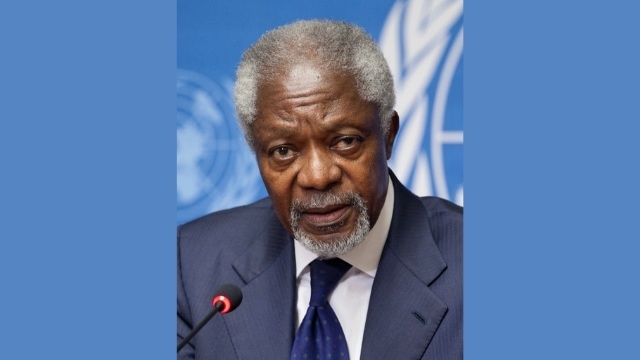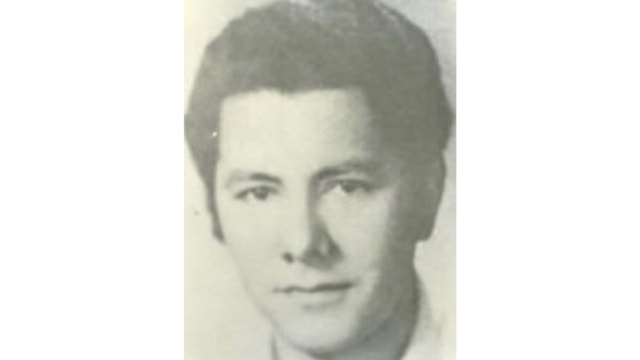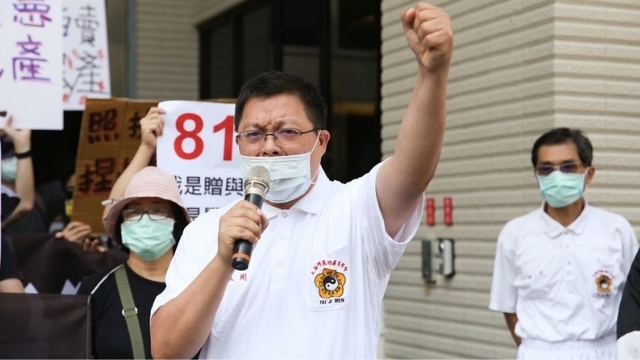10/30/2021MASSIMO INTROVIGNE
Inspired by a decision by the Inter-American Court of Human Rights, the U.N. became a main actor in promoting transitional justice. It is needed in Taiwan, too.
by Massimo Introvigne*
*A paper presented at the webinar “The United Nations, FORB, and the Tai Ji Men Case,” organized by CESNUR and Human Rights Without Frontiers on October 24, 2021, United Nations Day.

As we celebrate United Nations Day, it seems appropriate to reflect on an aspect of the activities of the United Nations that had been frequently mentioned in connection with the Tai Ji Men case: transitional justice. “Transitional” means that this justice should be administered when a country “transitions” from a non-democratic regime, where abuses of human rights have been perpetrated, to democracy. “Justice” means a duty to investigate and rectify past abuses, indemnify the victims, and punish the abusers.
Unbeknownst to many who visit Taiwan and rightfully compare it favorably to less democratic regimes in the area, Taiwan has not always been a democracy. Until 1987, it was under a regime of martial law, and massive violations of human rights were committed. Even after 1987, a “post-authoritarian” phase continued, as evidenced by the 1996 politically motivated crackdown on religious and spiritual movements, including Tai Ji Men. Transitional justice has been one of the main electoral promises of the current President, Tsai Ing-Wen.
The United Nations have acknowledged that what triggered their interest for transitional justice was a decision by the Inter-American Court of Human Rights rendered in 1984 against Honduras in the case of Manfredo Velásquez Rodríguez. Military regimes in Latin America had the bad habit of “disappearing” their opponents, who never reappeared. The case of Honduras, where according to the Inter-American Court some 150 dissidents “disappeared,” is less well-known than Argentina’s, where the desaparecidos might have been as many as 30,000. Yet, Velásquez Rodríguez, a student suspected of promoting anti-government ideas, had been taken with them by police and military men on September 12, 1981, and had never been seen again. The Court found that Honduras, when requested by the student’s family, had never seriously investigated the matter, has not made any effort to bring those responsible to justice, and had not compensated Velásquez Rodríguez’s family, as it should have done.

The Velásquez Rodríguez decision was often cited by the United Nations’ own studies of transitional justice, which led in the 1990s to the creation of the Office of the Special Rapporteur on the impunity of perpetrators of violations of human rights, and the institution of impunity of perpetrators to judge those had committed atrocities in the former Yugoslavia, in 1993, and Rwanda in 1994.
However, as then Secretary-General Kofi Annan stated in his report to the Security Council of August 23, 2004, which remains the most important U.N. document on transitional justice, this was not enough. The focus on “impunity” and punishment only, Annan added, might have led to losing sight of the fact that transitional justice has four different dimensions, and punishing the perpetrators is only one of them. For these reasons, in 2011, the title of the Special Rapporteur was changed to the broader one “Special Rapporteur on the promotion of truth, justice,
reparation and guarantees of non-recurrence.”
Although Taiwan is not a member state of the United Nations, it has incorporated into its domestic law the International Covenant on Civil and Political Rights (ICCPR) and the International Covenant on Economic, Social and Cultural Rights
(ICESCR), which also offer the basis for transitional justice. Kofi Annan recommended the creation of national commissions for “truth and justice,” as was done in South Africa. President Tsai did created in 2018 a Transitional Justice Commission, however, its scope is somewhat less broad than what Kofi Annan had in mind, as it mostly deals with rectifying decisions rendered for ideological reasons. Another serious problem is that the Commission only examines cases up to November 6, 1992, while the crackdown on spiritual movements and the Tai Ji Men case demonstrate that abuses occurred even after that date.

The Tai Ji Men case proves that all four dimensions of transitional justice mentioned by Kofi Annan and the U.N. should be implemented in Taiwan. First and foremost, acknowledge that rogue bureaucrats, including Prosecutor Hou Kuan-Jen who started and masterminded the case, committed crimes. As Annan said, publicly telling the truth is the most important aspect of transitional justice. Second, punish the perpetrators, which is not a question of vengeance but of justice. Third, indemnify the victims, which in the case of Tai Ji Men, also means giving back to them the land unjustly seized. Fourth, make sure that abuse, which can occur also in democratic regimes, would not happen again, which implies a serious reform of Taiwan’s tax system and bureaucracy.
I believe that we, as a community of international scholars and human rights activists who have studied the Tai Ji Men case, should raise our voices and make these four requests our own.
Source: Bitter Winter
